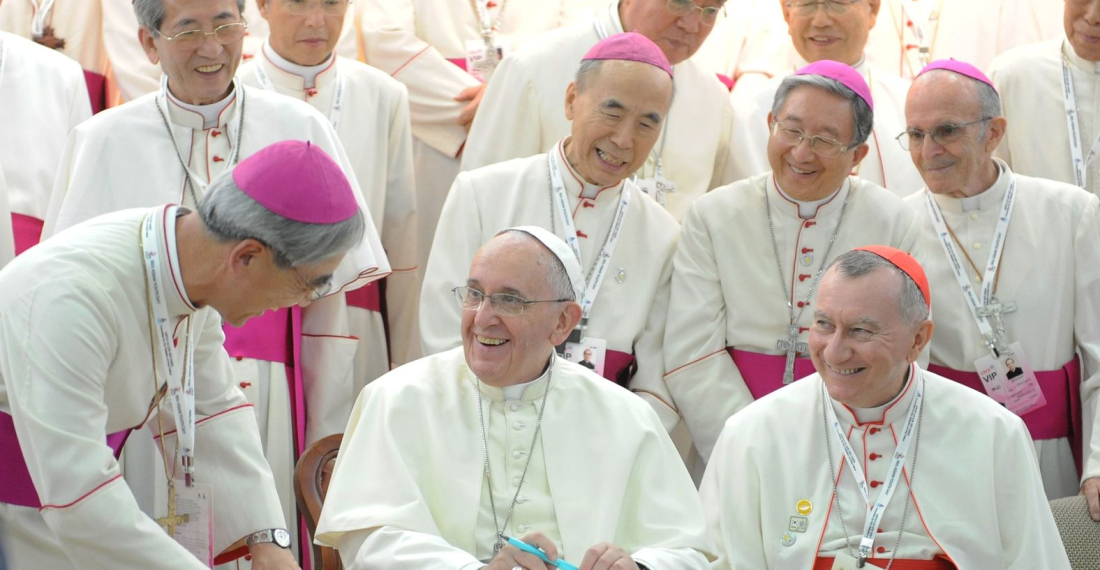Pope Francis, the first pontiff from the Americas and the southern hemisphere, has died Monday 21 April aged 88. He will go down in history as a radical pope, a champion of underdogs who forged a more compassionate Catholic Church while stopping short of overhauling centuries-old dogma. Dubbed "the people's Pope", the Argentine pontiff loved being among his flock and was popular with the faithful, though he faced bitter opposition from traditionalists within the Church.
He staunchly defended the most disadvantaged, from migrants to communities battered by climate change, which he warned was a crisis caused by humankind. But while he confronted head-on the global scandal of sex abuse by priests, survivors' groups said concrete measures were slow in coming.
From his election in March 2013, Jorge Mario Bergoglio was eager to make his mark as the leader of the Catholic Church. He became the first pope to take the name Francis after Saint Francis of Assisi, a 13th-century mystic who renounced his wealth and devoted his life to the poor. "How I would like a poor church for the poor," he said three days after his election as the 266th pope.
He was a humble figurehead who wore plain robes, eschewed the sumptuous papal palaces and made his own phone calls, some of them to widows, rape victims or prisoners. The football-loving former archbishop of Buenos Aires was also more accessible than his predecessors, chatting with young people about issues ranging from social media to pornography -- and talking openly about his health.
Francis always left the door open to retiring like his predecessor Benedict XVI, who in 2013 became the first pontiff since the Middle Ages to step down. After Benedict died in December 2022, Francis became the first sitting pope in modern history to lead a papal funeral.
He suffered increasingly poor health, from colon surgery in 2021 and a hernia in June 2023 to bouts of bronchitis and knee pain that forced him to use a wheelchair. His fourth hospitalisation, of more than a month for bronchitis in both lungs, was his longest, raising speculation he might step down.
But he brushed off talk of quitting, saying in February 2023 that papal resignations should not become "a normal thing". In a 2024 memoir, he wrote that resignation was a "distant possibility" justified only in the event of "a serious physical impediment".
For his first trip abroad, Francis chose the Italian island of Lampedusa, the point of entry for tens of thousands of migrants hoping to reach Europe, and slammed the "globalisation of indifference". He also condemned plans by US President Donald Trump during his first term to build a border wall against Mexico as un-Christian.
Francis re-energised Vatican diplomacy in other ways, helping facilitate a historic rapprochement between the United States and Cuba, and encouraging the peace process in Colombia. And he sought to improve ties with China through a historic -- but criticised -- 2018 accord on the naming of bishops.
Experts credited Francis with having influenced the landmark 2015 Paris climate accords with his "Laudato Si" encyclical, an appeal for action on climate change that was grounded in science. He argued that developed economies were to blame for an impending environmental catastrophe, and in a fresh appeal in 2023 warned that some of the damage was "already irreversible".
An advocate of peace, the pontiff repeatedly denounced arms manufacturers and argued that in the myriad of conflicts seen around the globe, a Third World War was underway. But his interventions were not always well received, and he sparked outrage from Kyiv after praising those in war-torn Ukraine who had the "courage to raise the white flag and negotiate".
In his modest rooms in the Vatican's Casa Santa Marta guesthouse, Francis dealt with stress by writing down his problems in letters to Saint Joseph. "From the moment I was elected I had a very particular feeling of profound peace. And that has never left me," he said in 2017. He also loved classical music and tango, stopping off once at a shop in Rome to buy records.
Jorge Mario Bergoglio was born into an Italian emigrant family in Flores, a middle-class district of Buenos Aires, on December 17, 1936. The eldest of five children, he was "born an Argentine but raised on pasta", wrote biographer Paul Vallely. He was ordained a priest in 1969 and appointed the provincial, or leader, of the Jesuits in Argentina just four years later.






